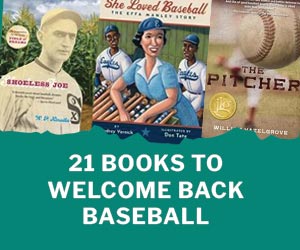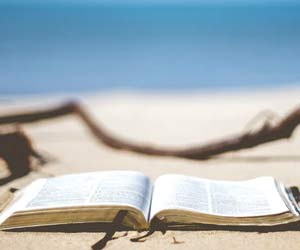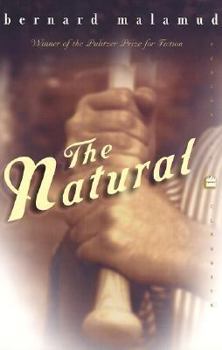The Natural
Select Format
Select Condition 
Book Overview
The classical novel (and basis for the acclaimed film starring Robert Redford) now in a new edition Introduction by Kevin Baker The Natural, Bernard Malamud's first novel, published in 1952, is also... This description may be from another edition of this product.
Format:Paperback
Language:English
ISBN:0060958294
ISBN13:9780060958299
Release Date:January 2000
Publisher:Harper Perennial
Length:240 Pages
Weight:0.50 lbs.
Dimensions:0.6" x 5.3" x 8.0"
Related Subjects
Ambition Friendship Love Regret Sacrifice Self-Discovery Literary Fiction Sports Fiction Baseball ContemporaryCustomer Reviews
5 ratings
The Malamudian hero
Published by Thriftbooks.com User , 24 years ago
In his 1952 novel, Bernard Malamud comments on the role of the hero in the modern world. In order to do so, he parallels Roy, the baseball natural and protagonist, with Percival the Arthurian knight. Roy is on a quest to join the game of baseball at the beginning of the novel. His first failure comes when he answers Harriet Bird's question wrong. When asked what he wants to become as a ballplayer, Roy can think of nothing more than personal gain. By inserting this in his book Malamud implies that many stars are in the game only for themselves. This refers to Percival asking the Fisher King the wrong question and being turned away. After a lapse of about fifteen years, Roy tries again to make it big in the pros. He joins a team called the New York Knights, an obvious relation to Arthurian legend, with the team coach Pop Fisher. Pop not only serves as a parent figure for Roy but he also resembles the Fisher King in the tale of Percival. Roy, who started out as a pitcher and is now a slugger, a reference to Babe Ruth, has made his own bat and dubbed it "Wonderboy". Roy's hitting is unbelievable while using this bat and he quickly becomes the league slugger. Percival, much like Roy, created his own lance with which to do battle. As Roy continues to increase in popularity, he is confronted with a wish from a dying lad at a hospital. His father asks Roy to hit a home run for his son because that is the only way his son will survive. Roy accepts this challenge and does in fact knock one out of the park for the boy and in doing so saving him. This alludes to Babe Ruth hitting a home run for the same reason. Malamud inserts this into his novel to show that even though most ballplayers are playing for personal gain, some also try to give back to the supporters. In a conversation with Iris Lemon, one of Roy's many loves, they discuss the importance of heroes. Iris, and in essence Malamud, states "Without heroes we're all plain people and don't know how far we can go." (167) This shows that Malamud respects heroes and expects them to set examples meant to be followed by all. There are many more examples of the hero motif as well as the Arthurian allusions near the end of the story, but in order to not spoil the ending, I will stop. Malamud does not only use these two motifs in his story but also many others such as color scheme, a bird motif, a train motif, and numerous allusions to events in baseball history. Beware though, this novel contains many scenes involving sexual topics. Malamud's use of these literary devices as well as his brilliant descriptions throughout the book make this story a must read for high school students.
A Natural Hit
Published by Thriftbooks.com User , 24 years ago
A natural is defined as one who has natural talent, especially in baseball. In Bernard Malamud's 1952 novel, The Natural, written in Arthurian legend style, Roy Hobbs leads the New York Knights into victory after victory. With his trusty Excalibur-like bat dubbed "Wonderboy", Hobbs uses his natural talent and leads the Knights on a mythical quest for the pennant. In contrast, however, a natural may also mean, as it did in the Middle Ages, an innocent fool. In the novel, Malamud uses both definitions to tell a story of a hero whose pride got in the way. Throughout the book, Malamud uses references to different colors and the passage of the seasons as Roy meets a variety of different characters. The father-like coach of the Knights Pop Fisher, his puzzling love interest Memo, the pure Iris, the crooked gambler Gus Sands, and many more diverse characters help create a theme of good versus evil. From the ballfield where Roy wages battle, to the Pot of Fire night club where Roy is confronted with evil, Malamud develops the tragic story of a hero on a grail-like quest who is tempted by the forces of evil at every turn. In the novel, written much like a play, Malamud utilizes a pastoral style to present complex ideas in a natural way. Using film-technique, which is movie-like changes in scene, Malamud shows Roy's struggle to overcome the evil in his life. Facing the fixers, the fans, the slump, and the jinx, Roy Hobbs embarks on a mythical quest to battle pride and evil in a classic tale of the tarnishing of an American icon.
Life does not always have a Hollywood ending
Published by Thriftbooks.com User , 25 years ago
Comparing "The Natural" the book to "The Natural" the movie is like comparing a fine multi-course meal to a big chocolate cake. Both are fine to eat, but expect a lot more variety and nuance out of the meal, not just the sweetness of the dessert. The book is the dark story of a strong and talented man ultimately taken down by his weaknesses. The movie is completely the opposite -- a typical Hollywood story of a hero overcoming adversity to emerge triumphant. Having read the book before seeing the movie, I was appalled at the movie's complete change of message from the book. Although I can understand the point of view of those who came to the book after the movie, it seems a bit simplistic to fault it on the basis that the ending was a bummer because it was not the happy one of the movie. Hollywood has always done that trick well -- "Breaking Away", "Hoosiers", "Rocky" etc. etc. etc. And they -- along with "The Natural" -- are good movies. But Malamud's true genius in "The Natural" (the book!) is that Roy Hobbs is not an icon -- he is a superman who turns out to be all too frail, a man on the run from the demons of his past, seeking his salvation in the power of his talents. There is nothing the matter with harmless escapism such as "The Natural" The Movie. But life is so much more complicated than that - a point which Bernard Malamud understands and commiunicates so well, and which Barry Levinson and his screenwriters have chosen to overlook.
Surprisingly dark and depressing, but a fascinating read.
Published by Thriftbooks.com User , 25 years ago
I wish that I would have read the book before I had watched the movie. I went into The Natural expecting to experience an uplifting story of a country boy who makes good, wins over his childhood sweetheart, and lives happily ever after. That, suffice to say, is not the way the book plays out. As a warning, other readers who enter the book with those same sort of narrow expectations will doubtlessly be disappointed somewhere along the way. However, I would be remiss to say that, in spite of the aforementioned let-downs (and perhaps even partly because of them), I found this work to be a facinating read. Malamud details a commentary on life, interspersed with wonderful Arturian allusions, through a saga of the game of baseball. Hobbs' character illustrates that, contrary to the movie's claim, that talent alone is not enough to succeed in life, and the way in which the story unfolds, while admittedly somewhat simple, is entertaining all the same. Once I got into it, I couldn't put the book down. The best advice I could give to readers would be to be open minded of the storyline, and not to limit yourself to preconceived expectations (this assuming you have watched the movie first). In doing so, I expect one will find Malamud's style to be fluid and his tale to be valuable.
The Natural is a powerful book that transcends baseball.
Published by Thriftbooks.com User , 26 years ago
The Natural is a powerful work that contains some of the most vivid imagery I have ever read. It is a story of human struggle and redemption through suffering. Roy Hobbs, the protagonist, is a flawed figure whose shortcomings are only surpassed by his ability to hit a baseball. Malamud manages to weave a tale that makes you want Roy Hobbs to succeed to be "the best player ever to play the game." To its credit the book bears almost no resemblance to the movie of the same name. Roy Hobbs is not Robert Redford! Malamud's use of imagery is well illustrated when a young Roy, on his way to a major league tryout as a pitcher has a showdown at a carnival with the Slammer. Each pitch is described in a way that shows just what a natural Roy is. His first major league at bat is also beautifully described. I must say that this book is not for the squeamish. It is an adult drama, well written and finely crafted. In short this is a book that is about more than baseball yet is baseball in its truest essence.
The Natural Mentions in Our Blog

21 Books to Welcome Back Baseball
Published by Ashly Moore Sheldon • March 09, 2023
Baseball season is almost here! As teams head to spring training, we're making plans for Opening Day, scheduled for March 30. In the meantime, here are 21 books for kids, teens, and grown-ups about baseball.

The Best Beach Books
Published by Ashly Moore Sheldon • July 31, 2020
We may not get to hang out on our favorite beaches this summer. But whether or not you get to bury your toes in the sand, you can drift away with one of these timeless tales. And be sure to check out some of the hottest new reads, too.






